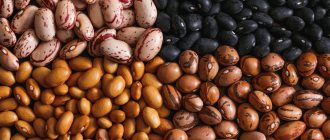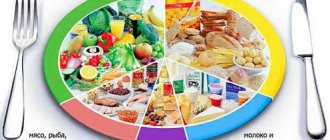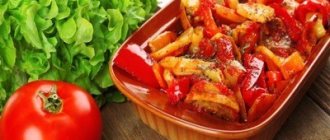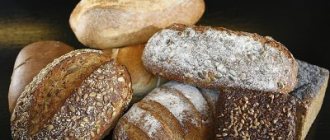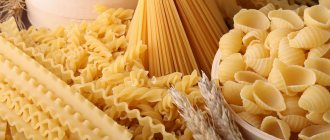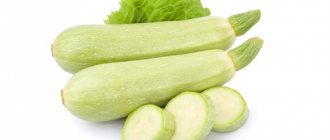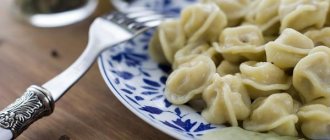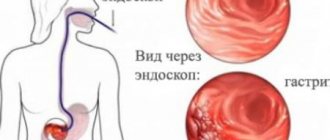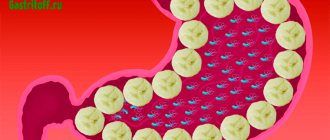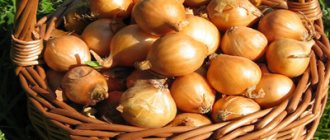How does a vegetable help in treating the gastrointestinal tract?
Potatoes are considered one of the most useful foods used in dietary nutrition. It contains many important vitamins and elements, including:
- starch;
- magnesium;
- checkered;
- potassium;
- iodine;
- vitamins (A, B, PP, C, E);
- organic acids;
- easily digestible proteins and carbohydrates.
For patients suffering from gastritis, the use of this product can improve the functioning of the stomach and intestines and relieve pain. They can eat baked, boiled potatoes, as well as mashed potatoes. This product can be added to soups. Boiled potatoes can be used to prepare salads (for example, vinaigrette).
Important! Patients with acute gastritis and gastrectomy can only consume semi-liquid mashed potatoes. Other dishes are contraindicated for them.
In small quantities (up to 200 grams per day), patients suffering from gastritis can eat raw potatoes. For this purpose, you should choose tubers that have no traces of rot, sprouts or shoots, since spoiled food can cause poisoning. It is better to give preference to large white tubers.
However, raw food eating is not suitable for everyone, and before starting it, you need to get permission from a gastroenterologist. The raw product is used to treat gastritis, since a large amount of starch coats the inflamed mucosa well. If the doctor does not agree with raw potato therapy, the product can be used to prepare various dishes.
Potatoes you definitely shouldn't eat
It would take the average person several hours to list all the cooking options. Not all recipes are suitable for those who suffer from gastritis.
The first example is the so-called potato flakes. Dry puree in a bag, can it benefit the body? No. But provoke an exacerbation of the disease - please. It is not the flakes that cause the deterioration of the condition, but the seasonings included in the product. They extend the shelf life of the semi-finished product, but have a negative effect on our stomach. It is better to replace the flakes with natural potato tubers, eat them boiled or baked.
You will also have to exclude from your diet:
- Fried potatoes. Especially French fries, which are cooked in a lot of oil.
- Pie and chips.
- Potato snacks: balls, straws, etc.
Now for the good news. If you are going to cook potatoes at home, you can use absolutely any variety. Inflamed walls will say “thank you” even for sweet yams. When choosing a product in a store, pay attention to its color and texture of the tubers. Most of the nutrients are contained in the peel or just underneath it. Therefore, young tubers will be less useful - their peel has not yet formed. It is very easy to distinguish such potatoes. It is small in size, the skin is thin and translucent, sometimes with a pinkish tint.
Some patients ask whether it is possible to have potatoes for gastritis with a greenish tint, the presence of sprouts, etc. More likely no than yes. Sprouted tubers contain a lot of solanine. This is a toxic substance that can damage even a healthy stomach, not to mention an inflamed one.
How to properly store tubers? Raw potatoes without skins cannot sit in the refrigerator for too long. After just a few hours, it loses its beneficial properties, and starch begins to turn into sugar.
Making delicious mashed potatoes
The most beneficial for the stomach is puree prepared in the following way:
- Peel the potatoes, immediately place them in boiling water and cook over high heat.
- After the water boils, add a little salt to the dish.
- Taste the potatoes with a fork; if they become soft, remove the pan from the stove.
- Drain a small amount of water (retain some of the liquid), grind the potatoes in a blender, mix with the rest of the broth and serve. No oil is added.
- For the dish to cook correctly, there should be a little water in the pan (it should cover the potatoes by 2 centimeters). If there is a lot of it, the vegetable will quickly give up all its beneficial properties.
Healthy puree recipe
From this cooking method you can learn several rules for processing vegetables:
- When peeling the tubers, grab enough pulp to avoid solanine (the green substance) from penetrating into the finished dish;
- start cooking immediately after peeling so that the tubers do not turn black;
- cook the vegetables in a small saucepan, the water should cover them by 1-2 cm;
- place the peeled potatoes in boiling water and cook over high heat to preserve all the beneficial substances;
- add salt after boiling.
If there are restrictions on the use of potatoes with milk, then leave part of the broth for mashing the potatoes. If there are no restrictions, drain the water completely and add milk and butter.
Advice! Grind the puree with a blender, this will make it more liquid and convenient for patients with gastritis.
If there are no prohibitions, then you can serve the dish with the addition of chopped dill or parsley. Steamed cutlets made from dietary meat and chops go well with potatoes.
What dishes are contraindicated
Patients suffering from acute or chronic gastritis are advised to completely avoid the following types of potato dishes:
- potato pancakes;
- zeppelins;
- potato zrazy;
- potato pancakes with crispy crust;
- French fries;
- fried potatoes;
- dumplings
All presented dishes are high in calories, they take a long time to digest, injure the gastrointestinal mucosa, cause heartburn, constipation, and stomach pain. Their use in the acute period of the disease is strictly prohibited.
Patients with a chronic form of gastritis during the period of remission can only eat half-raw fried potatoes in small portions no more than once every few weeks.
What is better to use with
Doctors recommend boiled potatoes in their jackets, as well as various types of mashed potatoes, for people with gastrointestinal problems. To ensure that such a product is well absorbed and does not create unnecessary stress on the stomach, it is better to eat it with assorted vegetables, fresh salads, sauerkraut and mushrooms. In the cold season, you can eat it with canned peas or corn.
It is not recommended to eat potatoes with fish and meat (especially fatty pork or beef). This combination of products causes bloating, exacerbation of gastritis, and provokes weight gain. At the same time, a person does not receive any useful substances from it.
Which potatoes to choose for mashed potatoes
Homemade vegetables are the best option for organizing a therapeutic diet. If you can’t prepare potatoes, try buying them from friends who grow them themselves in their dacha or country plot.
Advice! Try buying fresh vegetables at a farmers market in early fall.
Large suppliers who work with hypermarkets and markets often treat products with chemicals that extend shelf life and protect against pests.
Advice for patients with various forms of the disease
Each group of patients with one form or another of gastritis has its own recommendations:
- For high acidity, it is recommended to consume vegetable soups and semi-liquid purees. During an exacerbation, dishes are prepared with milk without adding butter. During the recovery period, the patient can eat potato casseroles, stews, steamed dishes with butter and sour cream.
- With low acidity in the acute stage, only semi-liquid puree in water with a drop of oil is allowed. During the recovery period, boiled, stewed and baked dishes can be introduced into the diet.
- With normal secretion, boiled, baked and stewed dishes, as well as steamed food, are allowed. It is prohibited to add refractory fats and lard to food.
Patients of all groups presented are prohibited from eating fried potatoes, dishes prepared with wine and vinegar dressings, as well as with the addition of hot sauces. This may cause an exacerbation of the disease.
Particular attention should be paid to the peculiarities of serving and storing boiled potatoes. The product should be prepared in small portions; it is recommended to serve it warm (at a temperature of 37 to 39 degrees). People suffering from gastritis and other gastrointestinal diseases are not recommended to eat heated and yesterday's food, or cooled dishes - this has a bad effect on the digestion process. Also, they should not eat hot food with a temperature of 60 degrees or higher - this slows down the stomach.
Raw potatoes against disease
Traditional medicine recommends that people with gastritis with high acidity drink freshly squeezed potato juice.
The use of this product relieves heartburn, pain symptoms in the stomach and intestines, eliminates constipation, and improves gastric motility. Only fresh potato tubers collected in summer and early autumn are suitable for making juice. The product is drunk immediately after preparation, since it spoils 10 minutes after squeezing. Drink juice 3 times a day, 0.3 glasses, half an hour before meals.
Since it has an unpleasant taste, it is mixed with other juices - apple, carrot, pear.
It should be noted that raw potatoes for gastritis are not suitable for all patients. There are contraindications to its use, these are:
- diabetes;
- reduced acidity of gastric juice;
- kidney pathologies;
- fermentation processes in the intestines;
- pancreatic diseases;
- obesity.
General recommendations for eating potatoes
Potatoes for gastritis are an important vegetable in the diet. Remember, when you are sick, your diet should be as varied and gentle as possible; you should not limit yourself to only food products. The optimal amount of potatoes as part of other dishes and in their pure form is no more than two hundred grams per day. Excessive consumption can lead to excess weight.
You should not eat mashed potatoes and other dishes hot; the food should be warm and the portions should be small. The best nutrition option for gastritis is fractional.
An important point in eating potatoes: there are known diseases for which the vegetable is contraindicated. For example, pancreatic diseases, diabetes, obesity. This confirms that any diet without harm to health is prescribed only by a doctor on an individual basis, taking into account the nuances.
We recommend the best dietary dishes
To keep your menu varied, despite your illness, pay attention to the following recipes:
- Stew. To prepare it, take small pieces of potatoes, carrots, broccoli (you can choose other vegetables to taste) and simmer in cream, milk or water until soft.
- Casseroles. For this simple dish, you need to take 3 eggs, pour in a glass of milk, beat until smooth, and then add potatoes, cheese, cottage cheese, and herbs. Bake the dish in the oven until golden brown.
- Potato dumplings. This dish can be consumed by patients during the recovery stage. They are prepared without fried onions and served with butter or low-fat sour cream.
- Soups. You can cook with meat or fish broth. You need to add vegetables, a little salt and cook until soft.
During the period of exacerbation of gastritis, vegetables from stews or soups should be pureed. It is better not to add salt and pepper to such dishes.
Potatoes are a useful vegetable for people suffering from various forms of gastritis. But in order for it to bring maximum benefits, it is extremely important to follow general recommendations for its selection, preparation, and combination with other products. It is best to opt for semi-liquid puree - such food is healthy for most patients, easy to prepare and quite nutritious.
The depressed mucous membrane of the digestive tract needs gentle nutrition. But during the period of illness it is necessary to replenish the strength of your body. For this, the best means are vegetables, as well as their juices, which have healing properties. Potatoes for gastrointestinal pathologies are a universal remedy in folk medicine.
Useful video
Elena Malysheva and guests of the “Live Healthy” program will tell you about the medicinal properties of raw potatoes.
Potatoes are a useful vegetable for people suffering from various forms of gastritis. But in order for it to bring maximum benefits, it is extremely important to follow general recommendations for its selection, preparation, and combination with other products. It is best to opt for semi-liquid puree - such food is useful for most patients, easy to prepare and quite nutritious.
It is no coincidence that the therapeutic diet includes mashed potatoes for gastritis and many other potato-based dishes. The chemical composition, rich in useful elements, and gentle properties make it a complete part of dietary tables during the treatment of gastritis.
Dishes made from the popular root vegetable have a beneficial effect on the walls of the stomach, are easily processed by gastric juice, quickly move to the intestines, and saturate the body with nutrients. They do not cause mechanical or chemical irritation. This is especially true for purees - pureed food causes minimal harm to the diseased organ, unlike solid foods.
The only condition is to cook and eat food according to the rules. Nutritionists and gastroenterologists, when asked whether you can eat potatoes for gastritis, answer in the affirmative, but with limitations in some recipes. So what kind of potatoes do doctors allow you to eat for gastritis?
The benefits of potatoes
Tubers have a unique composition, as they contain a lot of useful substances:
- vitamins (A, C, E, B, PP, H);
- minerals (K, Mg, I);
- fiber;
- starch;
- water;
- organic acids.
The vegetable is able to restore metabolism and remove waste and toxins. Despite their high calorie content, potatoes are useful for patients with gastritis because they contain starch. The carbohydrates that make up the tuber are complex, so they take a long time to digest. From a nutritional point of view, the use of this product is acceptable even during the period of weight loss. However, it must be combined with other non-starchy vegetables.
The root vegetable is easy to prepare. During the acute period of gastrointestinal diseases, boiling, baking and steaming of tubers is preferable. The cooked vegetable envelops the inflamed stomach. Even freshly squeezed juice has a healing effect in the treatment of most gastritis.
In addition, potatoes are easily digested by the body and give a feeling of fullness and comfort for a long time. Heat-treated starch is completely absorbed by the digestive tract. Therefore, the side effects of the product on the stomach and duodenum are minimal.
The effect of potatoes on digestion
The boiled pulp of the root vegetable does not contain coarse fiber, like some vegetables; its fibers are delicate and soft. Their share is small - only 1%. Once in the stomach, they quickly soften, swell, and do not irritate the mucous membrane. The bolus of food easily leaves the diseased organ and is gently evacuated into the duodenum.
Starch, which accounts for 17-20%, is partially converted during cooking into mucus, which is valuable for the gastric lining. It envelops damaged mucosal cells, lubricates the digestive tract, protecting against the aggressive effects of stomach acid, so you can safely eat potatoes if you have gastritis.
Potato dishes, cooked correctly, do not stagnate, so there is no fermentation and a feeling of heaviness, like a “weight in the stomach.” During digestion, gas formation is negligible, there is no excessive pressure on the walls, a feeling of fullness, or flatulence.
The potatoes do not need to be chewed thoroughly. Food processed by saliva smoothly flows into the stomach, quickly oxidizes there, without irritating the walls
Passing through the lower section, it is neutralized, then enters the alkaline environment of the duodenum, where it is processed by bile. Afterwards, it is fully absorbed by the lower parts of the intestine, without disturbing peristalsis and bowel movements.
How to take for gastritis
Potatoes are extremely beneficial for people with stomach diseases. It is consumed boiled and raw (in the form of juice). The healing extract has an antiulcer effect, protecting the mucous membrane from erosion. However, it is a perishable product, so it should be drunk immediately after preparation and not subjected to further storage.
The main factor in complications of gastritis is increased acidity of the stomach, which reduces the protective forces of the mucous membrane and exposes it to ulceration. You can reduce the level of secretion by drinking potato juice in its pure form. To do this, fresh tubers need to be grated on a fine grater or use a juicer. A third of a glass of the resulting liquid is drunk before meals. Potatoes go well with carrots and cabbage, so you can add other ingredients to the juice for variety.
At the peak of an exacerbation of the disease, the patient must follow diet table No. 1A. After the negative symptoms have subsided, table No. 1B with the addition of semi-liquid mashed potatoes is allowed. Then, for several months, the patient must adhere to the gentle diet of table No. 1, which includes boiled, stewed and baked potatoes, and a casserole made from them.
Potatoes in their pure form have an alkaline environment, so consuming them at low acidity is not recommended. The consequence of eating a large amount of the product will be a deterioration in the patient’s condition and the disease becoming chronic. However, a small addition of grated potatoes to vegetable soups is allowed.
In the acute stage of the disease, dietary table No. 1A is indicated, including semi-liquid puree. After the patient’s condition has normalized, table No. 2 is prescribed, which contains boiled liquid dishes with pieces of potato, as well as baked root vegetables with a small amount of sour cream.
To maintain the normal functioning of the digestive system, you should then adhere to dietary table No. 15, in which fried vegetables, such as French fries, as well as any refractory fats are prohibited.
The mucous membrane of the stomach performs a dual function: it produces digestive juice and at the same time protects the organ from the negative effects of acid. When this balance is disturbed, erosion occurs. The functions of internal receptors and glands gradually fade away, and their surface is replaced by fibrous tissue.
Thus, gastritis is complicated by atrophy. Potato juice helps prevent this process by lowering the level of hydrochloric acid. The tubers are peeled, grated, and then the juice is squeezed out. Take half a glass in the morning on an empty stomach for 10 days. Then they take a week break and repeat the treatment.
The root vegetable is indicated for stomach erosions, but only in boiled form. It is added to soups along with other vegetables. Heat-treated starch has an enveloping property, which helps in the treatment of internal organ damage.
Mashed potatoes for stomach ulcers are considered an acceptable dish, but only outside the acute stage. The root vegetable is boiled in unsalted water and served without oil. Treatment of erosions with potatoes is performed during the period of remission. For this purpose, freshly prepared juice is used. The course of therapy begins with a small spoon of nectar drunk before meals, and then the dose is adjusted to 100 ml. Take the juice for 10-12 days, then take a week break and repeat the treatment.
What are the benefits of potatoes?
Potatoes will be beneficial for gastritis if you follow the diet requirements. Proper heat treatment allows you to preserve phytoncides, amino acids, 30-50% of the daily dose of vitamins C, PP, D, E, group B, b-carotene, 12% magnesium, 24% potassium, 9% each of iron and phosphorus, 2% in the vegetable. calcium. Quercetin and choline contained in the vegetable reduce inflammation and neutralize free radicals.
Due to the high starch content, mashed potatoes have an enveloping property. A fresh, warm meal protects the sensitive stomach lining.
Puree boiled vegetables are easily digested and do not create a feeling of heaviness in the stomach.
Freshly squeezed potato juice helps cope with the unpleasant symptoms of gastritis, stomach ulcers, and eliminates heartburn. The tubers also contain fiber. It absorbs toxins like a sponge and also prevents the development of constipation. Vitamins B6, B9, A, which potatoes are rich in, are involved in metabolism and normalize the functioning of the liver and intestines.
Cooking methods
Potatoes are a healthy and filling vegetable. When creating a menu, everyone will be able to choose their favorite recipes for preparing root vegetables, because they are included in many dishes. The tubers must be mature, dense, without signs of mold or rot. And the best thing is to please yourself and your loved ones with a homemade product grown naturally without the addition of chemicals.
Most often, when there is inflammation of the digestive tract mucosa, the tubers are served in the form of mashed potatoes. To do this, the vegetable is peeled and cut into pieces, transferring it to a cooking container.
There should not be a lot of water in the pan with root vegetables, since this will transfer a lot of useful substances into the liquid. It is better to put it in boiling salted water, this way more vitamins are preserved. The cooking time should not be increased if the tubers have already begun to boil. And after that, you should drain the water only halfway, mashing the potatoes until smooth. Butter and milk are not included in dietary table No. 1A. When diet No. 2 is indicated, additional ingredients may be added.
Potatoes are an integral component of puree soups. All vegetables that are boiled in a saucepan are ground until smooth and served with herbs and dietary meat. Simple vegetable soups are perfectly filling and easy for the stomach to digest.
During the recovery period, potatoes are added to first courses with dietary meat and fish. The vegetables should be soft when served. Cooking liquid food with frying is not allowed.
During boiling, make sure that the water completely covers the root vegetable; it is not necessary to salt it. However, an old, wrinkled vegetable will not do you any good; you need to eat ripe and fresh root vegetables.
Making potato stew is easy and simple. Vegetables (carrots, cabbage, asparagus and potatoes) are cut into small pieces and stewed in one pan until softened. During the period of remission, it is allowed to add a little sunflower oil during cooking.
The delicate consistency of this dish will soothe the irritated mucous membrane of the gastrointestinal tract and help recover from an exacerbation of gastritis or ulcers. To do this, cook the puree with a little salt, milk and butter. Separately, whisk a few egg whites and gently fold into the cooked potatoes. Grate soft low-fat cheese there.
Transfer the resulting mass into a baking dish greased with butter. Cook the soufflé for 20 minutes at 200 degrees. Serve with greens, cutting the dish into portions.
In addition, during remission you can prepare dumplings with potatoes, but before eating them, visit your doctor.
When eating root vegetables when you are sick, take into account its contraindications: pancreatic diseases, diabetes mellitus and excess body weight. A diet for gastritis, including starchy vegetables (and juices), is prescribed only by a gastroenterologist. He can create a suitable diet, taking into account the accompanying symptoms and other pathologies of the digestive tract.
All iLive content is reviewed by medical experts to ensure it is as accurate and factual as possible.
We have strict sourcing guidelines and only link to reputable sites, academic research institutions and, where possible, proven medical studies. Please note that the numbers in parentheses ([1], [2], etc.) are clickable links to such studies.
If you believe that any of our content is inaccurate, out of date, or otherwise questionable, please select it and press Ctrl + Enter.
Potatoes are the second bread for many; first courses are unthinkable without them, they are an integral part of many salads, they are a popular side dish, so only a serious illness can exclude them from our diet.
Potatoes are an affordable and unique food among vegetables, they are rich in carbohydrates, contain healthy fats (MUFA and PUFA), significant amounts of vitamin C, fiber and potassium. [1] In traditional European medicine, raw potatoes are used for gastrointestinal and dyspeptic disorders. [2]
How to eat puree for gastritis with high acidity?
You can include mashed potatoes for gastritis in your diet even during periods of exacerbation of the disease:
- During the first 4 days after the onset of an exacerbation, the patient eats light soups with potatoes, as well as liquid puree with milk.
- When the symptoms of an exacerbation subside, the patient switches to a restorative nutrition plan. During this period, it is permissible to use soft puree with 5-7 g of butter and milk.
- Over the next 3 months after an exacerbation, adhere to a gentle diet. At this time, they eat boiled and stewed potatoes, casseroles and mashed potatoes with them.
- With normalization of nutrition, potatoes can be eaten more often, observing restrictions on the methods of processing the product.
Is it possible to have potatoes for gastritis?
This root vegetable can be prepared so that it is useful and acts as a medicine for the stomach, or it can be made undesirable and even harmful.
Gastritis includes pathologies caused by inflammation of the gastric mucosa, its various defects, loss of the ability of the secretory glands to normally produce digestive enzymes for food processing, and weakening of the motor functions of the organ.
Symptoms appear either acutely, painfully, or transform into a calmer chronic state, which periodically reminds itself when deviating from the rules of nutrition: excessive consumption of alcohol, spicy, fried, sour; from stressful situations; treatment with medications.
Different stomach conditions allow you to consume one or another type of potato.
Benefit
The healthiest new potatoes grown on your own plot without the use of chemicals to control weeds and pests. Firstly, it is an easily digestible vegetable carbohydrate, and secondly, it contains vitamins C, K, PP, group B, and minerals potassium, phosphorus, calcium, iron, magnesium, sodium, zinc, bromine, silicon, copper, etc. The dry matter in potato tubers is mostly starch, there is protein with all the amino acids found in plants, sugars, pectin substances, and organic acids. Cooked potatoes contain 544 mg potassium/100 g and 27 mg magnesium/100 g, which is 12% and 7% of the daily intake of potassium and magnesium recommended by the US Institute of Medicine. [3]
Potatoes have an antioxidant effect. [4], [5] Also demonstrated hypocholesterolemic, anti-inflammatory, anti-obesity, anti-cancer and anti-diabetic effects. [6] Potato glycoalkaloids, α-chaconine, α-solanine and solanidine, as well as potato peel extracts have anti-inflammatory effects in vitro. [7]
Useful qualities of potatoes
It is not for nothing that potato tubers are considered “second bread”; their pulp contains a lot of substances necessary for humans. Boiled potatoes for gastritis, when the breakdown and absorption of nutrients are impaired, supplies the body with carbohydrates, valuable plant protein tuberin, vitamins, pectins, microelements, and essential amino acids.
The composition of potato tubers varies in percentage, depending on the variety, but in general contains:
- Water;
- Starch;
- Protein tuberin;
- Other nitrogenous compounds;
- Sugar in the form of glucose (65%), sucrose (30%), fructose (5%);
- Vegetable fat (0.1 - 0.15%);
- Enzymes;
- Mineral salts;
- Vitamins c, e, pp, b1, b2, b6, k, biotin, provitamin a, pantothenic acid;
- Fiber;
- Organic acids;
- Amino acids, including a full set of essential ones for humans;
- Pectins;
- Microelements - potassium, phosphorus, magnesium, iodine, calcium, iron, sulfur, zinc, silicon, bromine, manganese, boron;
- Coumarin;
- Carotenoids.
The beneficial chemical compounds in potatoes are easily absorbed because they are in the form of alkaline salts, which has a beneficial effect on the acid-base balance of the blood.
Complications
Potatoes are generally considered a high glycemic index (GI) food. The highest GI values were found for mashed potatoes, while average values were found for baked potatoes, French fries and potato chips. [8] There are at least 17 studies, mostly observational, examining the association between dietary factors and type 2 diabetes. Only 2 studies (case-control and cross-sectional) reported a significant association between potato consumption and the risk of developing T2DM. [9] Epidemiological data have shown an association between consumption of potato products and weight gain (Mozaffarian et al. 2011), but these studies did not separate out the effects of components added during cooking/processing, such as fat, or other foods consumed with potatoes. [10]
Complications are possible from an increase in the glycemic index, as well as exacerbation of gastritis in the case of unknown acidity and its discrepancy with the effect of potatoes on the walls of the stomach.
Contraindications and precautions
In certain situations, potato juice can only harm the body. For example, if a person has very low stomach acidity. A starchy drink is excluded from the diet when a person has diabetes. Any dishes containing starch are undesirable.
But even if you have high acidity, you need to be careful with starchy water. Firstly, you should not drink it for more than 10 days. Be sure to take a break, and only then can you continue treatment. Secondly, you should not exceed the recommended dosage. This will not speed up treatment, but will worsen the condition of the stomach and pancreas.
One more thing. When answering the question whether it is possible to have boiled potatoes for gastritis, we focused on the prohibition of sprouted or green potatoes. This rule also applies to juice. Since tubers contain many toxins, juice cannot be extracted from them either.
Dish recipes
There are many recipes for potato dishes, so before using them, you need to select those that meet dietary principles.
Under no circumstances should you eat chips, only during long-term remission, occasionally allow yourself fried potatoes, pancakes, and avoid stewing it using fatty meats.
Boiled potatoes are very easy to prepare. The tubers are washed well, filled with water, salted after boiling, and brought to readiness. After cleaning it, you can pour it with oil or sauce and eat it as a side dish; in this form it is used for salads.
To prepare the puree, you must first peel the root vegetables, then boil them in water, which is then drained. The potatoes themselves are thoroughly kneaded, diluted to the required consistency with warm milk, and butter is added. If the acidity is low, do not pour milk into the puree, but leave a little of the liquid in which it was cooked.
The puree is used to make casseroles. Place a layer of potatoes in a mold greased with vegetable oil, mince lean meat on it (as for cutlets, but without bread), cover with mashed potatoes, brush with beaten egg and bake.
The healthiest potato, baked, requires absolutely no effort: the root vegetable is washed well and placed in the oven or microwave. It can also be wrapped in foil. Eat directly with the peel or peel (optional).
In vegetable stews, along with other ingredients (cauliflower, zucchini, tomatoes, carrots, onions, eggplants), potatoes are also cut, which makes the dish more satisfying.
Features of preparing mashed potatoes and potato dishes
Most of the valuable substances and vitamins in the potato tuber are located under the skin. With gastritis, potatoes are subjected to prolonged heat treatment. To maximize the preservation of beneficial elements, you need to finely peel the root vegetables before cooking.
Potato dishes for gastritis:
- Soups. Small pieces of potatoes, cereals, and other vegetables are placed in a weak fish or meat broth, as well as in a vegetable broth, and boiled well. During periods of exacerbation, wipe. They don't do sautéing.
- Puree. Cook the potatoes until soft, pound, dilute with water and milk (half and half) to a semi-liquid consistency, season with butter or sour cream.
- Stewed dishes. Small pieces of vegetables are stewed in water, broth, milk, cream, sour cream until soft.
- Casseroles. The puree is poured with an egg-milk mixture, cottage cheese, cheese and herbs are added. Bake until soft crust.
- Steam dishes. Any recipe is allowed, but the dish must be soft and tender.
- Dumplings with potatoes for gastritis are allowed during the recovery stage. Fried onions are not added to the filling and dressing. It is better to pour butter, cream, sour cream.
Potato juice for gastritis
Since potato juice has a healing effect for gastritis with high acidity, it is worth talking about it separately. Prepare it immediately before use, especially since it is easy to do. Clean potatoes are peeled, grated on a fine grater, and filtered through cheesecloth. It is best to treat them at the end of summer or autumn, when the new harvest arrives.
How to drink it? On an empty stomach, an hour before meals, you should drink half a glass of the drink three times a day. It is neutral in taste and does not cause any particular rejection or rejection. The average course of treatment is 10-14 days. You can repeat it after the same period of time.
A serving of juice can be replaced with 100g of raw potato pulp. It retains beneficial substances longer than juice. Fiber will effectively cleanse the intestines and give you a feeling of fullness.
It has been proven that drinking freshly squeezed potato juice in a dosage of 100 ml for 1 week twice a day can be useful for self-treatment of dyspeptic symptoms. [eleven]
Other recipes
Delicious mashed potatoes, suitable for a diet for gastritis with high acidity, can be obtained from baked vegetables:
Do not peel the washed tubers; wrap them in foil.
- Bake at 200-220 degrees for 30-40 minutes or until done.
- Cool the vegetables slightly, cut them in half, and scoop out the pulp with a spoon.
- Mix the mixture with butter and milk, add a pinch of salt.
Baked vegetables contain slow carbohydrates, which fill you up and energize you for a long time.
Potato soup
An excellent dietary option for potatoes is puree soup. It is prepared from well-cooked vegetables. You can add some boiled carrots, pumpkin or broccoli to the composition. Other products go well with potatoes: cauliflower, beets, greens.
If the consistency is too hard when cooking, use a blender to chop the vegetables.
Healthy dumplings
Prepare homemade dumplings with potatoes that do not contradict the diet for gastritis with high acidity. You will need: a glass of flour, 0.5 kg of finished puree, an egg, 50 g of butter and a little salt.
- The dough is kneaded from eggs, flour and water. It should turn out viscous, but not stick to your hands. Cover the workpiece with cling film and let stand for 20-30 minutes. At this time, cook the puree.
- The dough is made into a sausage , cut into several pieces, and rolled out into round flat cakes. They put puree in them and form dumplings. Some can be cooked immediately, the rest can be put in the freezer.
- Boil homemade dumplings for 10-15 minutes after boiling . Before serving, add a piece of butter. If sour cream is used, then excess fat should not be included in the dish.
A diet for gastritis excludes foods that can harm the patient’s body. In case of exacerbation of gastritis, first of all you should review your menu.
Homemade mashed potatoes made from high-quality vegetables are useful for gastritis with high acidity. It protects the walls of the stomach and prevents constipation, but when sick with low acidity, puree is eaten as little as possible, completely excluding dishes with added flour.

